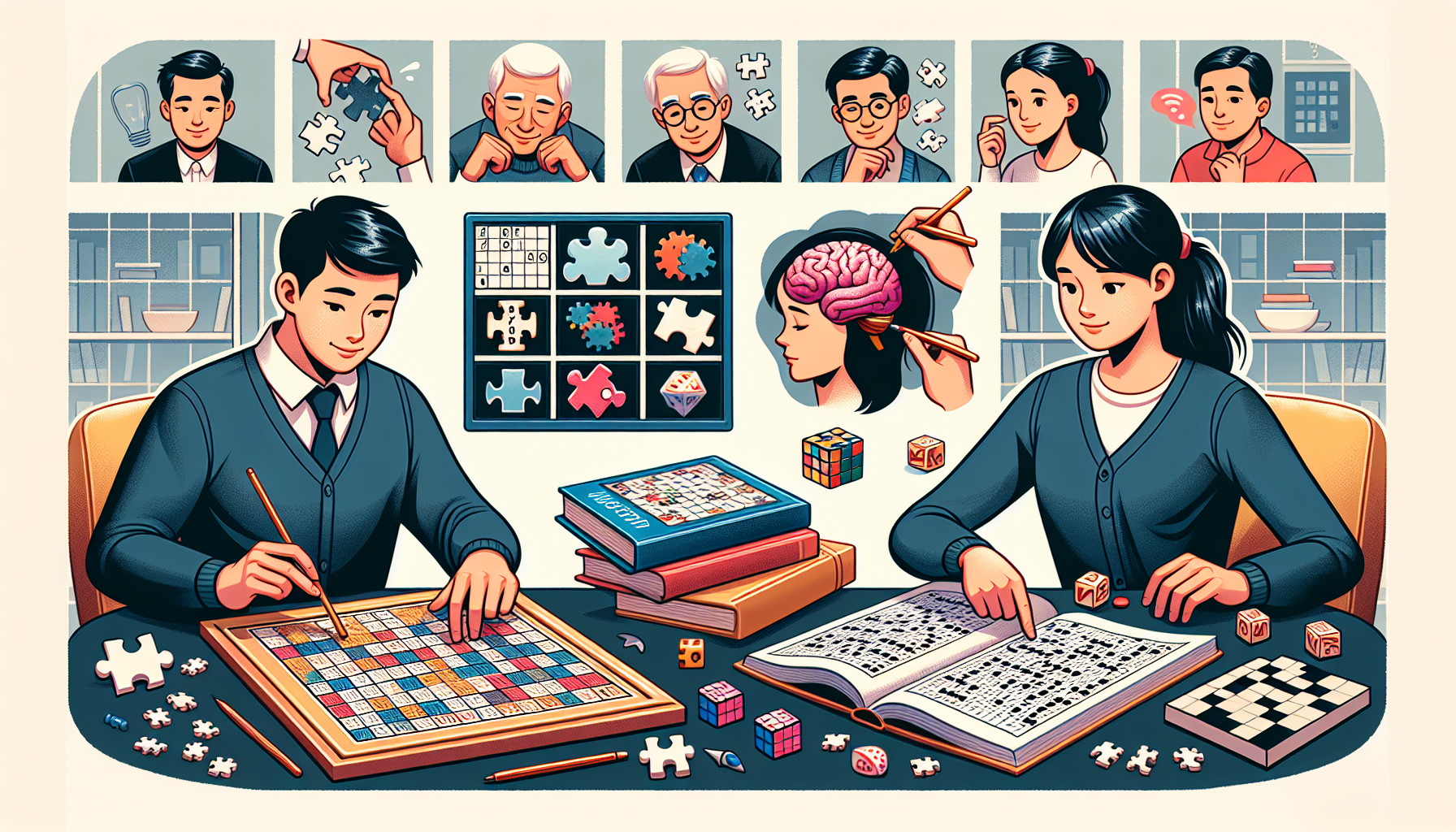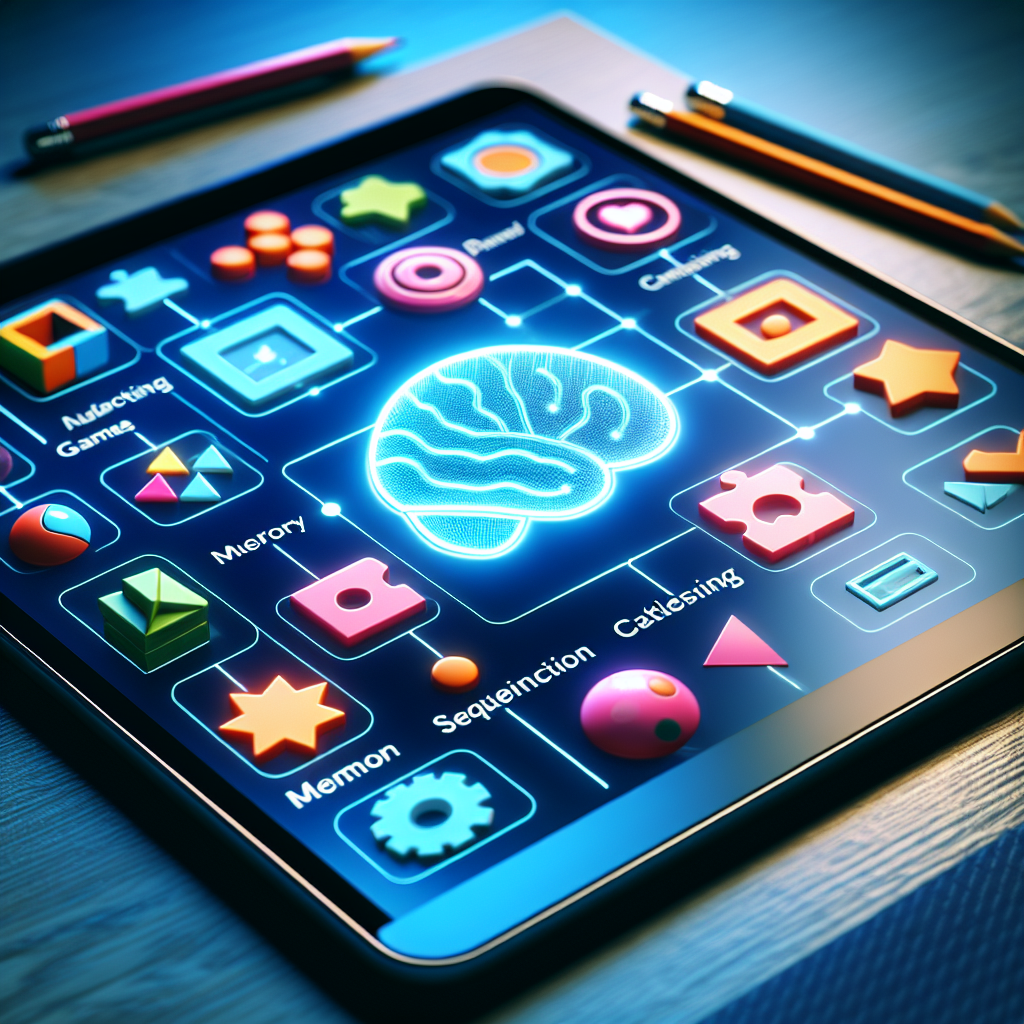In today’s fast-paced world, cognitive enhancement is not just a desire—it’s a necessity. As we age, our cognitive functions naturally decline, affecting memory, problem-solving skills, and the ability to focus. However, recent research suggests that brain training games can significantly counteract these declines, offering a fun and interactive way to boost brainpower. In this article, we’ll explore the science behind brain training games and how they can enhance cognitive abilities, improve memory, and maintain mental sharpness.
Understanding Brain Training Games
Brain training games are designed to improve specific cognitive functions such as memory, attention, flexibility, speed of processing, and problem-solving. These games are often computer-based and range from puzzles and memory games to logic and strategy games. The underlying premise is that, just like muscles in the body, the brain can be ‘exercised’ to improve its performance.
Scientific Support for Brain Training
Several studies have suggested that brain training can lead to measurable improvements in cognitive function. For instance, a study found that individuals who engaged in brain training games demonstrated improved memory, faster processing speed, and better problem-solving abilities. These games work by increasing neuroplasticity—the brain’s ability to form and reorganize synaptic connections, especially in response to learning or following injury.
However, it’s important to note that not all games are created equal. High-quality brain training games are those that are backed by scientific research and designed by neuroscientists and cognitive psychologists. These games typically adapt to the user’s performance, becoming more challenging as the user’s ability improves, ensuring that the brain is always being pushed to learn.
Linking Brain Health to Brain Training
The concept of brain training closely aligns with broader brain health strategies. A healthy brain is better equipped to tackle cognitive tasks and is more resilient to age-related decline. Therefore, integrating brain training games with other health practices is key to maximizing cognitive enhancement.
Enhancing Memory Retention
One of the primary benefits of brain training is improved memory. Memory is a complex process involving multiple areas of the brain, and games that challenge recall and working memory can lead to significant improvements. For example, certain games that encourage the use of mnemonic devices or strategies to remember sequences of items can enhance memory retention. This is particularly beneficial for the elderly, as highlighted in the article on Cognitive Improvement Techniques for the Elderly.
Impact on Mental Clarity and Focus
Another area where brain training games show promise is in improving mental clarity and focus. Games designed to enhance attention and concentration can help individuals better manage distractions and multitask more effectively. This is analogous to the benefits of physical exercise, as discussed in the article on How Physical Exercise Promotes Mental Clarity and Focus.
Brain Training and Mental Health
The benefits of brain training extend beyond cognitive enhancement to include mental health improvements. Engaging in brain training activities can reduce stress, anxiety, and depression by providing a sense of accomplishment and a break from daily stressors. The mental stimulation can also offer a protective effect against cognitive decline associated with mental health issues.
Combating Brain Fog Through Lifestyle
Brain fog—a common term for the feeling of confusion, forgetfulness, and lack of focus and mental clarity—can also be addressed through brain training games. Coupled with healthy lifestyle choices, such as a balanced diet and regular exercise, brain training can help clear the mental cobwebs. The synergistic effects of a healthy lifestyle and brain training are detailed in the article on Combating Brain Fog Through Diet and Lifestyle.
External Supportive Resources
To further understand the impact of brain training games on cognitive enhancement, numerous external resources are available. For instance, the Cognitive Neuroscience Society provides insights into the latest research on neuroplasticity and cognitive training. Additionally, platforms like SharpBrains offer a wealth of information on brain health and the efficacy of different brain training programs.
Strategies for Incorporating Brain Training into Daily Life
Incorporating brain training into one’s daily routine can be simple and enjoyable. Here are some strategies to consider:
- Set a Regular Schedule: Dedicate a specific time each day for brain training to establish a routine.
- Vary the Activities: Engage in a variety of games to challenge different cognitive skills.
- Monitor Progress: Use apps and programs that track improvement over time to stay motivated.
- Combine With Physical Exercise: Pair brain training with physical activity to enhance overall brain function.
Conclusion
Brain training games offer an engaging and effective way to enhance cognitive function and prevent mental decline. By incorporating these games into a comprehensive brain health strategy, individuals can reap the benefits of improved memory, sharper focus, and better problem-solving abilities. Remember to choose scientifically-backed games and integrate them with other healthy lifestyle choices for the best results. As the field of cognitive neuroscience advances, we can expect even more innovative and effective brain training tools to emerge, helping us to stay mentally fit and agile at any age.



